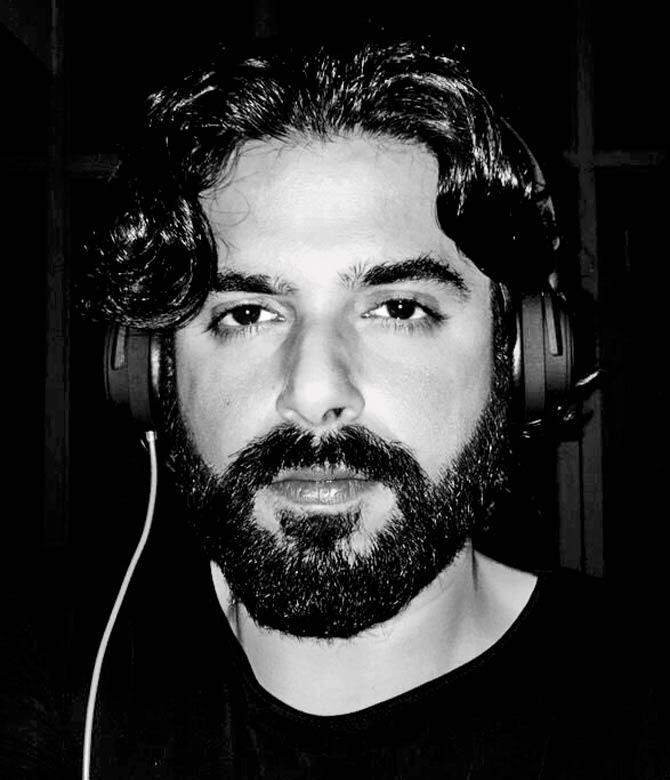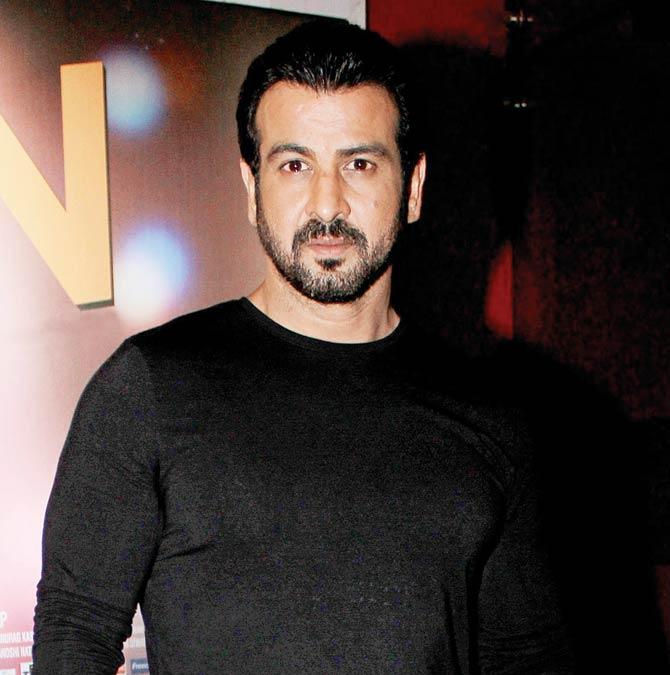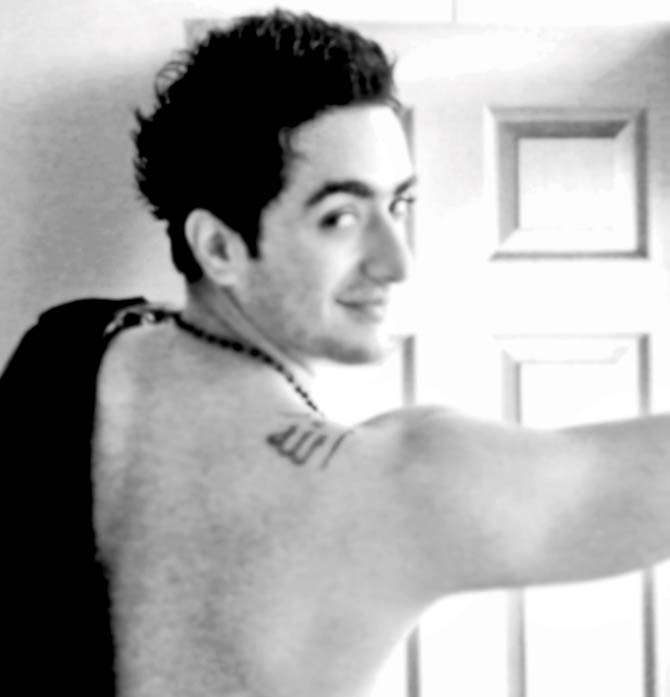Popular small screen celebrities talk about their television journey from when they started off to now, to figure exactly how much things have changed

TV actors
ADVERTISEMENT
Shooting for a television soap, especially a daily, is an exacting task. With shoots stretching to a minimum of 16 hours, no days off and the rush to meet channel deadlines, things can get hectic and chaotic. It's tougher for newcomers who draw the short end of the stick when TRPs determine twists and turns in the plot. Over time, however, the same actors can call the shots once the characters they portray become a hit. They can now call the shots on which projects to take on but also shoot timings, holidays and number of scenes. When the character becomes popular, remuneration and working conditions change overnight. Hitlist speaks to some popular actors about their television journey from when they started off to now, to figure exactly how much things have changed.
Rashami Desai
Production houses don't give you everything you demand, unless you've reached a certain level of success. Your personal life takes a hit since they constantly threaten to replace you. There's never a fixed time to go home. But, if you are focused, there's no need for threats. I was clear that I wanted to work. Once my father was admitted to the ICU and I told the production team that I needed to leave early, but wasn't taken seriously. I had shot with them for 14 hours and was upset. Despite doing everything they asked for an entire year, I had been rebuffed on the one request I had made. In protest, I didn't go to the shoot for two days, which is when they apologised. You can be nice, but a few rules must be followed. You have to put your foot down. Today, if I have to shoot for more than 12 hours, I'll still do it. It's a different field and you have to work when you have to. And for all the unconditional love I receive, this isn't too much of a sacrifice.
Tina Dutta
Things become difficult as you want a certain kind of role and the right remuneration. You look for the complete package. My experiences were good. I am blessed that I got a good role in Uttaran. When you are doing well professionally and have a hit show on air, it has an impact and you are treated like a star. The catch is to stay humble since success is temporary. It's your relationships that stay with you; success, name and fame, come and go.
Sharad Kelkar
The struggle period is essential for growth. There are a lot of hardships to confront when you enter the field. You learn lessons and value it more. So, when you make demands, you remember the hardships and make reasonable ones. Those who get everything on a platter, don't value what they have. Yes, things change for a person as time goes by. Acting is an art and you need keep up the spirit. When you enter this field, you do everything that comes your way to learn the basics. It is with time that you learn to be selective and take up jobs that are different. I work for as many hours as required. It is a financially beneficial industry and you get priority and respect. In my case, I am a workaholic. In the last four months, I have taken only four days off. I make sure that I finish my part and there is no issue with the telecast. I may crib, but I finish my work before leaving. As for the demands I have, well, I require my personal space. I can't share my vanity van. I do not like sharing my washroom either since I am a clean freak. I want to look good on screen and have to eat right. I tell them in advance that between 1.30 pm and 2.30 pm, I need to eat, so my meal timings are fixed and so is my time at the gym. I need a little creative license considering I am into writing as well. So, I get involved at the start of the show with respect to my character. And, if the director changes or the script is altered, then I make sure that my character hasn't changed.
Gautami Kapoor
Today's newcomers know how to negotiate their contracts to their advantage. They are clued in to things. I have worked with a lot of first-timers and I see them putting their foot down on a lot of issues. No one has been able to bulldoze them into anything. Working in this industry is a give-and-take relationship. There are discrepancies in treatment — a newbie may have to share his/her vanity van with a co-actor — but that is part of the growth process. When I was new, I shared my make up room with six women. I have worked in three shows at a time, and sometimes worked for over 36 hours at a stretch. Everyone gets their due in time. Now that I am experienced, I get paid decently. My only requirement has been a 12-hour shoot. In my contract, I have put in a clause that I be allowed to leave by 5 am on night shoots, regardless of whether the shoot has been completed or not. There have been clauses that if you reach late, money will get cut but I've not agreed on it. I understand that producers have to safeguard their interests, especially if artistes turn up late. But since I am always 15 minutes early, I didn't agree to that clause.
Rajeev Khandelwal
This is not specific to the television or film industry. In any field, as you become senior and have a few years of experience, the equation changes, and you are treated with more respect. As time goes by, the production house knows you can deliver, and then things are more organised. A scene will take less time for someone who is aware of the camera, the lights, and what goes into giving a good product. You are in a position to distribute time to other things as well. If I am committed to a certain number of hours, I give them that and this is something this time gets locked much before I start work on the project. Beyond that, it is my time, as being an actor we have to maintain ourselves. Luckily, till date, I have not had any issues with any production house. The expectations are always discussed beforehand.
Gurmeet Choudhary
When I was new there was barely any money. Getting even R3,000 was great. If you signed up for 12 hours, it would extend to 18-20 hours of work a day. Once you are established, things change. From a meagre amount, we earn in lakhs on TV and the timing are just 12 hours. Yes, initially, you have to share your room or vanity van with four others, even though as an actor you should get some personal space and privacy for rehearsals. It's different when you become a name. With respect to holidays, I have had issues with every production house. But working in a daily soap is tricky, especially if you are the lead actor. You have to give at least a month's notice if you need two days off. And if you are taking an off, you work overtime to finish your portion beforehand.
Raj Singh Arora
Earlier, I had to land up on sets on time every day in the morning even if the shoot was starting late. Today, if shooting is delayed then the production guys call me and ask me to come late. Remuneration depends on being a star, rather than being an actor. I feel actors are still underpaid in the industry, no matter how good they are. You may be an atrocious actor, but if you are a popular face on TV, you will still be paid more, which is how the industry works and that is considered normal.
When you talk of differential treatment, that does exist. For example, I had grown a beard , but the production house had a problem with it. I said as a regular man, the character could have a beard when he wants to, so they finally agreed. Treatment from production houses change according to the experience you have. I made the big mistake of being away from TV for five years; it became difficult when I returned. If you are a star, you get more offers, you get equal opportunities if you are a good actor — that's what I believe. If you are a newcomer you are chained to the production house, you cannot do anything else, but if you are a seasoned actor, then production houses make adjustments.
Gauri Pradhan Tejwani
All the production houses want to treat you the same way whether you are new or experienced, but these days, there are so many new faces in the industry. When they get fame overnight, sometimes it goes to their head and they don't know how to handle it. Then, the production house has to adhere to their demands and is left with little choice. For me, it has always been the same: I have always worked on my terms and conditions. Even when I started, I was treated like a queen and nothing has changed till date. But that does not mean that you should take advantage of it. I do not agree with stars coming late, or not showing up, giving silly excuses or holding the production house for ransom. My most important clause is time. When I started, I'd take off my wig at sharp 9 pm and they know that nothing could stop me after that. Money has never been an issue. Most of my work has been with Balaji and they've never given me any trouble with that.
Param Singh
Yes, I do feel new comers are treated differently. With experience, monetarily, you get paid better. In television, experienced actors make a lot of money; they get their own timings, and they decide at the start itself that they will work for 20 days in a month. I have been lucky with my production house; if I have a suggestion, they listen patiently. They've given me enough creative freedom to act the way I want. As for holidays, since we are required to be in most scenes, it is essential that you tell them in advance and they will fix things accordingly. My production house has been very cooperative.
Ronit Roy
There is no difference really. I have always been treated like a star. Earlier, there were no vanity vans, now my van is slightly bigger. Of course, things have changed with time. After 15 years, you make more money; your stature improves. I have worked with Balaji for 10 years, and even when we shot outdoors, they've always given me a business class ticket and never asked me to share a room with anybody. I have always been taken care of. Earlier, I would come home once in ten days, but that was my choice. I still work 30 days a month. I have given 26 years to this industry — don't you think I deserve to be treated differently than someone who has just entered? As far as the storyline goes, no body gets to choose what they do. That's the writer's domain. If it's a debate for the betterment of the product, you firstly have to have the knowledge. Without that, you can't be demanding. I give them options of doing things differently and then it is the director's call. I put my money where my mouth is. At times, I've asked for a change in the director also. When you see that a director is not good for a show, then you need a different director, but eventually, it is the production house's call.
Aly Goni
Yes, I felt the difference, because people were a little rude to me in the beginning. However, with my previous show, the treatment improved and now that I am a lead in a show, they treat me well. There have been changes. I have been with them for three years now, so I get a lot more respect. With respect to other production houses, earlier, I would have to stand in line and wait for auditions, but now they call me at a particular time and it gets over within 10-15 minutes. They respect my time now. When I started off, I barely got paid, in fact, I didn’t even ask for money. One day, Vikas Gupta asked me how much I was being paid and I said, I really don’t know. Then they started paying me Rs 3,000. Even in Yeh Hai Mohabbatein, right in the beginning, my pay was quite less and eventually, things became better. It all depends on the character you play. Once my character gained popularity, I started getting paid more than several other actors.
 Subscribe today by clicking the link and stay updated with the latest news!" Click here!
Subscribe today by clicking the link and stay updated with the latest news!" Click here!







